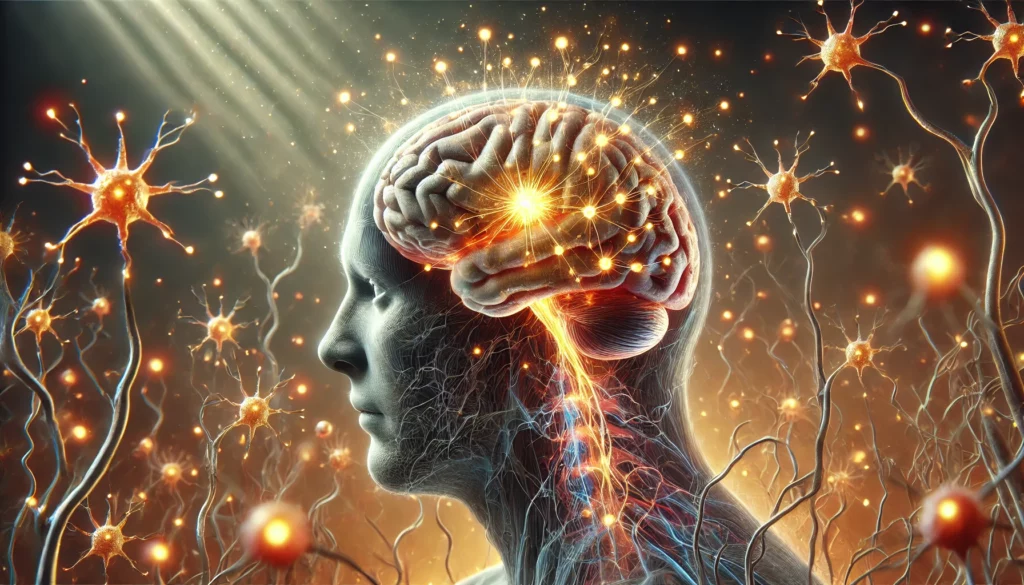
Acetylcholine is an essential neurotransmitter that plays a key role in memory, learning, attention, and sleep regulation. While most research on bipolar and unipolar disorder primarily focuses on neurotransmitters such as dopamine, serotonin, and norepinephrine, acetylcholine is gaining increasing attention in the study of mental health disorders.
Studies suggest that dysregulation in the cholinergic system is linked to mood disorders, cognitive impairments, and sleep disturbances in individuals with bipolar and unipolar disorders. But what exactly is acetylcholine’s role, and how does it influence the course of these conditions?
🧠 The Function of Acetylcholine in the Brain
✔ Cognition & Memory – Acetylcholine is essential for learning and information processing.
✔ Sleep-Wake Regulation – It influences REM sleep and helps balance wakefulness and rest.
✔ Attention & Concentration – Supports focused thinking and mental performance.
✔ Emotional Processing – Acetylcholine interacts with other neurotransmitters to regulate mood.
📌 Dysregulation of the cholinergic system can therefore contribute to cognitive deficits, sleep disturbances, and emotional instability—symptoms frequently seen in bipolar and unipolar disorders.
🔄 Acetylcholine in Bipolar and Unipolar Disorders
1. Acetylcholine and Depression (Unipolar Disorder)
✔ Increased acetylcholine activity has been observed in depressive phases – an excess may contribute to negative thinking patterns and reduced motivation.
✔ Acetylcholine regulates cortisol (the stress hormone) – an imbalance may increase stress sensitivity in depressive patients.
✔ Disturbances in REM sleep (intense, vivid dreaming) are common in depression—acetylcholine plays a crucial role in regulating REM sleep.
📌 An excess of acetylcholine may intensify depressive symptoms, particularly rumination, irritability, and concentration difficulties.
2. Acetylcholine and Bipolar Disorder
✔ An imbalance between dopamine and acetylcholine could be linked to extreme mood fluctuations.
✔ In mania: A low acetylcholine level may contribute to excessive energy, rapid speech, and restlessness.
✔ In depression: A high acetylcholine level may intensify melancholic symptoms.
📌 A disrupted balance between acetylcholine and dopamine could contribute to the extreme mood shifts seen in bipolar disorder.
🛠 Treatment Approaches for Acetylcholine Regulation
Since acetylcholine plays a vital role in mood, cognition, and sleep, targeted therapeutic interventions may help regulate the cholinergic system:
✔ Pharmacological Treatments:
- Anticholinergic Medications (e.g., certain antidepressants or antipsychotics) → Can reduce acetylcholine overactivity.
- Cholinesterase Inhibitors (e.g., Donepezil) → Used for cognitive impairments, but being explored for mood disorders.
✔ Lifestyle & Nutritional Strategies:
- Choline-Rich Diet (eggs, fish, nuts) → Helps stabilize acetylcholine levels.
- Maintaining a Regular Sleep Schedule → Supports the brain’s natural acetylcholine balance.
✔ Non-Pharmacological Therapy:
- Cognitive Behavioral Therapy (CBT) → Helps manage negative thought patterns linked to cholinergic imbalances.
- Mindfulness & Meditation → Regulates cortisol, which interacts with acetylcholine.
📌 Although research on acetylcholine-targeted treatments for bipolar and unipolar disorders is ongoing, early findings suggest promising therapeutic possibilities.
🎯 Conclusion: Acetylcholine – An Overlooked Factor in Bipolar and Unipolar Disorder?
✔ Acetylcholine plays a critical role in cognition, sleep regulation, and emotional processing.
✔ In depression, an excess of acetylcholine may intensify symptoms, while in mania, a deficiency may contribute to hyperactivity.
✔ An imbalance between acetylcholine and dopamine may influence mood swings in bipolar disorder.
✔ Future research may offer new treatment approaches by specifically targeting the cholinergic system.
💡 While serotonin and dopamine remain the primary focus of research, acetylcholine may be an essential but underexplored factor in the treatment of bipolar and unipolar disorders. 💙